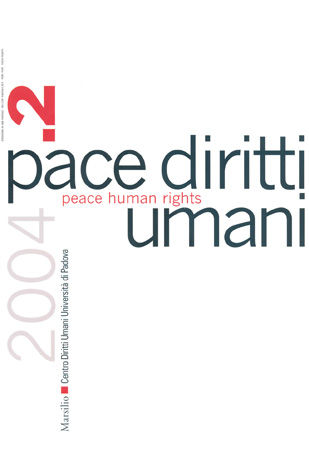Raccolte

Straniero: tra esclusione e cittadinanza costituzionale
- Contenuto in
- Pace diritti umani - Peace Human Rights, 2/2004
- Tipologia pubblicazione
- Articolo / Saggio
- Pagine
- 13-34
- Lingua
- IT
Foreigner: between exclusion and constitutional citizenship
Marco Ferrero, Benedetta Pricolo, Marco Spinnato
The essay offers an investigation upon the legal status of the foreigner in the framework of the new «European citizenship». The authors inquire about this status based on the concept of citizenship as a dis-criminant element, as a tie that binds a person to the legal system of his/her own country. In the EU system citizenship mechanism is still conceived in terms of a Jus excludendi alios. How is it possible to reconcile this fact with the actual juridical recognition of human rights at both national and international level? The authors argue that the «residence» parameter should play a key role in redefining citizenship. The conceptual change produced by the universal paradigm human rights should lead to a progressive reduction of unreasonable distinctions, according to the philosophy of equality, inclusion and participation.

